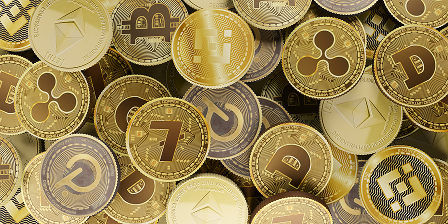Decentralization: Why is it important for the Future of Finance?
February 20, 2025
Decentralization, which lies at the heart of many blockchain projects and cryptocurrencies, promises to revolutionize the financial system. But why is decentralization considered so important for the future of finance? Let’s figure it out.
What is decentralization in the context of finance?
The traditional financial system, based on banks and other centralized institutions, has long been dominant. However, with the advent of blockchain and cryptocurrencies, a new paradigm has emerged in the financial market – decentralized finance (DeFi).
The traditional system is characterized by centralization, where all transactions go through intermediaries, which slows down the process and increases fees. Data transparency also leaves much to be desired, and fraud risks remain high. In contrast, DeFi offers a decentralized model where transactions are recorded on a public ledger, making them transparent and secure. The absence of intermediaries speeds up the process and reduces commissions. Additionally, DeFi makes financial services accessible to everyone, regardless of geographic location or social status.
There are many successful projects in the DeFi field. One of the most famous is MakerDAO, which creates stablecoins backed by cryptocurrencies. The Aave and Compound platforms allow users to borrow and lend against cryptocurrencies, creating decentralized lending markets. Uniswap, in turn, is one of the largest decentralized exchanges where users can exchange tokens without intermediaries. These and many other projects demonstrate the potential of DeFi to transform the traditional financial system.
IN The PayPilot Academies have highlighted theseadvantages of decentralized systems:
Safety: Thanks to the distributed registry, it becomes almost impossible to hack the system, since making changes requires simultaneous control over the majority of network nodes. This makes decentralized systems incredibly resistant to hacker attacks.
Transparency is another key benefit. All transactions are recorded on a public blockchain, which is accessible to all network participants. This openness increases the level of trust and reduces the risk of fraud, since all the actions of participants are visible to everyone.
Availability is another attractive feature of decentralized systems. The absence of a centralized authority allows anyone with Internet access to become part of the network and participate in various processes. This is especially important for financial inclusion, as decentralized finance (DeFi) opens access to financial services to millions of people previously excluded.
Finally, decentralized systems are highly censorship resistant. No organization can block or reverse a transaction, making them more resilient to external influences and political pressures.
Thus, decentralization offers a new approach to organizing various systems, ensuring security, transparency, accessibility and censorship resistance
How is decentralization changing finance?
- Cryptocurrencies: Decentralized digital currencies offer an alternative to fiat money, allowing direct transactions between users without intermediaries.
- Smart contracts: These are self-executing contracts, the terms of which are written directly into the blockchain. They automate many financial processes and make them more transparent.
- Decentralized Exchanges (DEX): These platforms allow you to trade cryptocurrencies without intermediaries, which increases security and liquidity.
- Asset tokenization: Any asset, from real estate to works of art, can be represented as a token on the blockchain. This simplifies the process of buying, selling and owning assets.
Despite all the benefits, decentralization comes with its own challenges. Regulatory uncertainty, scalability, user experience are just some of the issues that need to be addressed. However, the potential of decentralized systems is enormous. They can become the basis for a new financial system that is fairer, more transparent and accessible to all.
Decentralization is not just a technological trend, but a fundamental paradigm shift. It offers new opportunities for the development of the financial sector, increases the security and transparency of transactions, and expands access to financial services. Despite existing challenges, decentralization has the potential to become a key factor in the future of finance.
The transition to decentralized systems based on blockchain promises us more freedom and control over our lives. Imagine being able to manage your finances without intermediaries, vote on important decisions right from your smartphone, or create online communities without censorship. Blockchain opens up new opportunities for collaboration and innovation across geographic boundaries. However, this transition is not without challenges. Cryptocurrency volatility, security issues and regulatory uncertainty are just some of the issues that need to be addressed. However, the potential of decentralization is enormous and can be the basis for a fairer and more democratic society.




